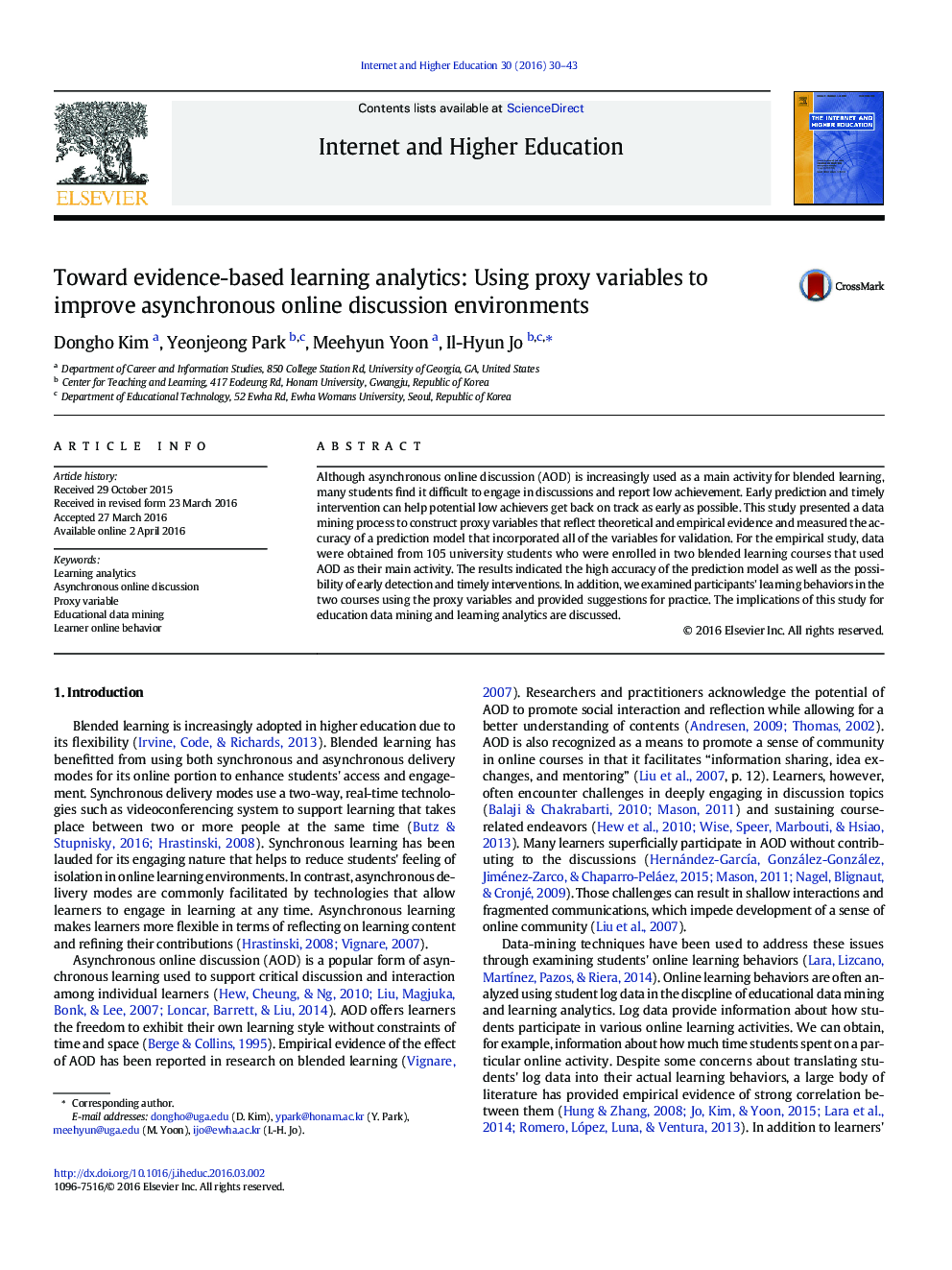| Article ID | Journal | Published Year | Pages | File Type |
|---|---|---|---|---|
| 357685 | The Internet and Higher Education | 2016 | 14 Pages |
•Learners often report poor engagement and low achievement in asynchronous online discussions.•Drawing upon theoretical and empirical evidence in the literature, we proposed proxy variables to predict potential low achievers.•The prediction model demonstrated commendable performance in terms of accuracy, precision, specificity, and recall.•We also examined participants' learning behaviors in using the proxy variables and provided suggestions for practice.
Although asynchronous online discussion (AOD) is increasingly used as a main activity for blended learning, many students find it difficult to engage in discussions and report low achievement. Early prediction and timely intervention can help potential low achievers get back on track as early as possible. This study presented a data mining process to construct proxy variables that reflect theoretical and empirical evidence and measured the accuracy of a prediction model that incorporated all of the variables for validation. For the empirical study, data were obtained from 105 university students who were enrolled in two blended learning courses that used AOD as their main activity. The results indicated the high accuracy of the prediction model as well as the possibility of early detection and timely interventions. In addition, we examined participants' learning behaviors in the two courses using the proxy variables and provided suggestions for practice. The implications of this study for education data mining and learning analytics are discussed.
